|
Books Should Be Free Loyal Books Free Public Domain Audiobooks & eBook Downloads |
|
|
Books Should Be Free Loyal Books Free Public Domain Audiobooks & eBook Downloads |
|
History Books |
|---|
|
Book type:
Sort by:
View by:
|
By: John H. Haaren and A.B. Poland | |
|---|---|
 Famous Men of Modern Times
Famous Men of Modern Times
Famous Men of Modern Times is a series of biographical sketches written for the purpose of making the study of history lively and interesting by giving insight into the men who lived during this time. Summary by Laura Caldwell | |
By: Nat Love (1854-1921) | |
|---|---|
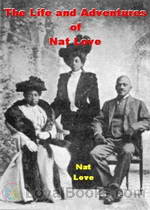 The Life and Adventures of Nat Love, Also Known As Deadwood Dick
The Life and Adventures of Nat Love, Also Known As Deadwood Dick
Nat Love was born a slave, emancipated into abject poverty, grew up riding the range as a cowboy and spent his maturity riding the rails as a Pullman Porter. For me, the most amazing thing about him is that despite the circumstances of his life, which included being owned like a farm animal solely because of the color of his skin and spending later decades living and working as an equal with white coworkers, he was an unrepentant racist! Convinced that the only good Indian was a dead one, and that... | |
By: Frank Lewis Dyer and Thomas Commerford Martin | |
|---|---|
 Edison, His Life and Inventions
Edison, His Life and Inventions
One of the most prolific and multi-talented geniuses the world has ever seen, Thomas Alva Edison's life is indeed an inspiration for each new generation. Today we live in a world that would not have been possible if not for several of his important inventions – the electric light bulb, the motion picture camera, electric power distribution, the phonograph, and a host of other things that we take for granted today. In fact, he still holds the world record for the maximum number of patents, numbering 1093 in all! Edison – His Life and Inventions by Frank Lewis Dyer and Thomas Commerford Martin, published in 1910 was in fact a biography commissioned by Edison himself... | |
By: Ethel Sybil Turner | |
|---|---|
 Seven Little Australians
Seven Little Australians
This is the story of seven incorrigible children living near Sydney in the 1880’s with their military-man father, and a stepmother who is scarcely older than the oldest child of the family. A favourite amongst generations of children for over a century, this story tells of the cheeky exploits of Meg, Pip, Judy, Bunty, Nell, Baby, and The General (who is the real baby of the family), as well as providing a fascinating insight into Australian family life in a bygone era. | |
By: Catharine Parr Traill (1802-1899) | |
|---|---|
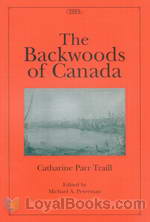 The Backwoods of Canada
The Backwoods of Canada
The writer is as earnest in recommending ladies who belong to the higher class of settlers to cultivate all the mental resources of a superior education, as she is to induce them to discard all irrational and artificial wants and mere useless pursuits. She would willingly direct their attention to the natural history and botany of this new country, in which they will find a never-failing source of amusement and instruction, at once enlightening and elevating the mind, and serving to fill up the void left by the absence of those lighter feminine accomplishments, the practice of which are necessarily superseded by imperative domestic duties... | |
By: John Wesley Powell (1834-1902) | |
|---|---|
 Canyons of the Colorado, or The exploration of the Colorado River and its Canyons
Canyons of the Colorado, or The exploration of the Colorado River and its Canyons
John Wesley Powell was a pioneer American explorer, ethnologist, and geologist in the 19th Century. In 1869 he set out to explore the Colorado and the Grand Canyon. He gathered nine men, four boats and food for ten months and set out from Green River, Wyoming, on May 24. Passing through dangerous rapids, the group passed down the Green River to its confluence with the Colorado River (then also known as the Grand River upriver from the junction), near present-day Moab, Utah. The expedition’s route... | |
By: William Dean Howells (1837-1920) | |
|---|---|
 My Mark Twain
My Mark Twain
William Dean Howells (1837-1920) became fast friends with Mark Twain from the moment in 1869 when Twain strode into the office of The Atlantic Monthly in Boston to thank Howells, then its assistant editor, for his favorable review of Innocents Abroad. When Howells became editor a few years later, The Atlantic Monthly began serializing many of Twain’s works, among them his non-fiction masterpiece, Life on the Mississippi. In My Mark Twain, Howells pens a literary memoir that includes such fascinating scenes as their meetings with former president Ulysses Grant who was then writing the classic autobiography that Twain would underwrite in the largest publishing deal until that time... | |
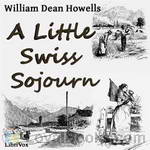 A Little Swiss Sojurn
A Little Swiss Sojurn
A charming brief account of a two months' autumnal stay on the shores of the Lake of Geneva. Howells, who was there with his family traveling from England to Italy, has a sharp eye not only for scenery and architecture, but for people and customs, both Swiss and foreign. | |
By: Brooks Adams (1848-1927) | |
|---|---|
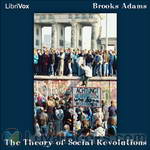 The Theory of Social Revolutions
The Theory of Social Revolutions
Brooks Adams (1848- 1927), was an American historian and a critic of capitalism. He believed that commercial civilizations rise and fall in predictable cycles. First, masses of people draw together in large population centers and engage in commercial activities. As their desire for wealth grows, they discard spiritual and creative values. Their greed leads to distrust and dishonesty, and eventually the society crumbles. In The Law of Civilisation and Decay (1895), Adams noted that as new population centers emerged in the west, centers of world trade shifted from Constantinople to Venice to Amsterdam to London... | |
By: Friedrich Nietzsche (1844-1900) | |
|---|---|
 Case of Wagner / Nietzsche Contra Wagner / Selected Aphorisms
Case of Wagner / Nietzsche Contra Wagner / Selected Aphorisms
A collection of three of Nietzsche's writings concerning the music of Wagner. In particular, he relates Wagner's music as degenerate, unrefined and unintelligent and relates it to a gradually degenerating German culture and society. The translator provides a detailed introduction. | |
By: Hilaire Belloc (1870-1953) | |
|---|---|
 The French Revolution
The French Revolution
“It is, for that matter, self-evident that if one community decides in one fashion, another, also sovereign, in the opposite fashion, both cannot be right. Reasoning men have also protested, and justly, against the conception that what a majority in numbers, or even (what is more compelling still) a unanimity of decision in a community may order, may not only be wrong but may be something which that community has no authority to order since, though it possesses a civil and temporal authority, it acts against that ultimate authority which is its own consciousness of right... | |
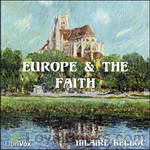 Europe and the Faith
Europe and the Faith
The Catholic brings to history (when I say "history" in these pages I mean the history of Christendom) self-knowledge. As a man in the confessional accuses himself of what he knows to be true and what other people cannot judge, so a Catholic, talking of the united European civilization, when he blames it, blames it for motives and for acts which are his own. He himself could have done those things in person. He is not relatively right in his blame, he is absolutely right. As a man can testify to his own motive so can the Catholic testify to unjust, irrelevant, or ignorant conceptions of the European story; for he knows why and how it proceeded... | |
By: Lieh-Tzu | |
|---|---|
 The Book of Lieh-Tzü
The Book of Lieh-Tzü
The Liezi (Chinese: 列子; pinyin: Lièzĭ; Wade-Giles: Lieh Tzu; literally “[Book of] Master Lie”) is a Daoist text attributed to Lie Yukou, a circa 5th century BCE Hundred Schools of Thought philosopher, but Chinese and Western scholars believe it was compiled around the 4th century CE. During the reign of Emperor Xuanzong of Tang, the Liezi was designated a Daoist classic, completing the trilogy with the more famous Daodejing and Zhuangzi. The Liezi is generally considered to be the most practical of the major Daoist works, compared to the philosophical writings of Laozi and the poetic narrative of Zhuangzi... | |
By: William Harrison Ainsworth (1805-1882) | |
|---|---|
 Windsor Castle, Book 1
Windsor Castle, Book 1
Book 1 - Ann Boleyn. The focus of the novels is on the events surrounding Henry VIII's replacing Catherine of Aragon with Anne Boleyn as his wife. During Henry's pursuit of Boleyn, the novel describes other couples, including the Earl of Surrey and Lady Elizabeth Fitzgerald, a match Henry does not support. However, some of the individuals oppose Henry and his desires for Boleyn, including Thomas Wyat who wants her for himself and Cardinal Wolsey, who uses his own daughter, Mabel Lyndwood, to lure Henry away from Boleyn... | |
By: US Army Corps of Engineers, Manhattan District | |
|---|---|
 The Atomic Bombings of Hiroshima & Nagasaki
The Atomic Bombings of Hiroshima & Nagasaki
This is the official report, published nearly 11 months after the first and only atomic bombings in history (to date), of a group of military physicians and engineers who accompanied the initial contingent of U.S. soldiers into the destroyed cities of Hiroshima and Nagasaki. The report presents a clinical description of the devastation, loss of life and continued suffering of the survivors that resulted from the world’s first and only atomic bombings. The appendix is an eyewitness account, contrasting... | |
By: George B. Grinnell | |
|---|---|
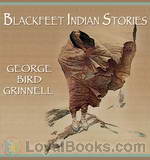 Blackfeet Indian Stories
Blackfeet Indian Stories
The Blackfeet were hunters, travelling from place to place on foot. They used implements of stone, wood, or bone, wore clothing made of skins, and lived in tents covered by hides. Dogs, their only tame animals, were used as beasts of burden to carry small packs and drag light loads. The stories here told come down to us from very ancient times. Grandfathers have told them to their grandchildren, and these again to their grandchildren, and so from mouth to mouth, through many generations, they have reached our time. (Sibella Denton) | |
By: Giacomo Casanova (1725-1798) | |
|---|---|
 The Memoirs of Jacques Casanova
The Memoirs of Jacques Casanova
This is the first of five volumes. – Giacomo Casanova (1725 in Venice – 1798 in Dux, Bohemia, now Duchcov, Czech Republic) was a famous Venetian adventurer, writer, and womanizer. He used charm, guile, threats, intimidation, and aggression, when necessary, to conquer women, sometimes leaving behind children or debt. In his autobiography Histoire de ma vie (Story of My Life), regarded as one of the most authentic sources of the customs and norms of European social life during the 18th century, he mentions 122 women with whom he had sex... | |
By: Elizabeth Davis Bancroft (1803-1886) | |
|---|---|
 Letters from England, 1846-1849
Letters from England, 1846-1849
Elizabeth Bancroft went to England with her husband, historian George Bancroft, for three of the most dynamicy years in European hstory. As Ambassador to England from the United States, George moved in the highest circles. In his wife’s letters to their sons, her uncle, her brother, and Mrs. Polk (the President’s wife), we see glimpses not only of early Victorian English life, but also of Queen Victoria herself! Mrs. Bancroft speaks of dinners with Benjamin Disraeli, visits to Wordsworth, weekends in the country with Louis Napolean and Sir Robert Peel with such matter of fact aplomb that one cannot help being impressed. | |
By: Robert Michael Ballantyne (1825-1894) | |
|---|---|
 The Coral Island - A Tale of the Pacific Ocean
The Coral Island - A Tale of the Pacific Ocean
Ralph Rover is a traveler at heart, and has always dreamed of shipping out to the South Seas islands. He finally convinces his aging parents to let him go and find his way in the world. But the islands that Ralph finds are not as idyllic as in his dreams. Shipwrecked on a large, uninhabited island, Ralph and his fellow survivors, Jim and Peterkin, discover a world of hostile natives and villainous pirates. Danger, high adventure, and wonders of the sea greet them at every turn. When all seems lost, they find help from an unexpected source. | |
By: Tacitus, Publius Cornelius (c. 56-117) | |
|---|---|
 The Works of Tacitus Vol. I, edited, translated, and with essays by Thomas Gordon
The Works of Tacitus Vol. I, edited, translated, and with essays by Thomas Gordon
The historical works of Tacitus are a history of the period from A.D. 14 to 96 in thirty volumes. Although many of the works were lost (only books 1-5 of the Histories and 1-6 and 11-16 of the Annals survive), enough remains to provide a good sense of Tacitus’s political and moral philosophy. Tacitus recognized the necessity for strong rulers but argued that more should be done to manage the succession of power and allow for the ascension of talent. He asserted that it was the dynastic ambitions of Rome’s many emperors that caused the decline of moral and political life and precluded the possibility of recruiting leaders of real ability... | |
By: James Norman Hall | |
|---|---|
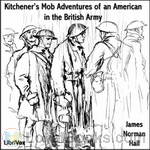 Kitchener's Mob Adventures of an American in the British Army
Kitchener's Mob Adventures of an American in the British Army
“Pvt Ryan”, “Platoon”, “A Soldier’s Home”, “Kitchener’s Mob”. These aren’t happy stories, they are about the experience of War. War at different times, and although modern warfare may be more sanitized, the adventure, the horror, the emotions don’t change. James Norman Hall has been there. He “Saw the Elephant”, and his portrayal of his WWI experience is a tribute to those ordinary people who do such extraordinary things. Those who have served will identify with at least some part if not all of this book, be it the rigors of training, the camaraderie, or possibly those memories that try as you may, you can never make go away... | |
By: Princess Der Ling | |
|---|---|
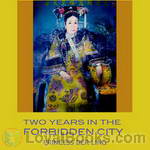 Two Years in the Forbidden City
Two Years in the Forbidden City
THE author of the following narrative has peculiar qualifications for her task. She is a daughter of Lord Yu Keng, a member of the Manchu White Banner Corps, and one of the most advanced and progressive Chinese officials of his generation. she became First Lady-in-Waiting to the Empress Dowager, and while serving at the Court in that capacity she received the impressions which provide the subject-matter of this book. Her opportunity to observe and estimate the characteristics of the remarkable woman who ruled China for so long was unique, and her narrative throws a new light on one of the most extraordinary personalities of modern times... | |
By: John Frederick Bligh Livesay (1875-1944) | |
|---|---|
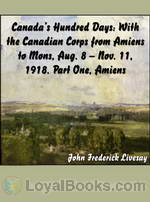 Canada's Hundred Days: With the Canadian Corps from Amiens to Mons 1918
Canada's Hundred Days: With the Canadian Corps from Amiens to Mons 1918
This is the incredible story of the actions of the men and women of the Canadian Expeditionary Force, Canada’s contribution to the Great War 1914-1919, during the last 100 days of the First World War. After nearly 4 years of stalemate (trench warfare) the Allied Forces planned to break through the German Hindenburg Line and then push the enemy from their defensive positions. You will follow the CEF as they take Amiens (Part One), Arras (Part Two), Cambrai (Part Three) and then the pursuit of the German Forces from Valenciennes to Mons (Part Four) in Belgium, the same place where the war began on August 4, 1914, on November 11, 1918. | |
By: Pierre Gustave Toutant Beauregard (1818-1893) | |
|---|---|
 The First Battle of Bull Run
The First Battle of Bull Run
General Pierre Gustave Toutant Beauregard was one of the senior commanders of Southern forces during the Civil War. It was he who initiated the hostilities by opening fire on Ft. Sumter in Charleston harbor, in April, 1861. In July of that year, having taken command of the Confederate Army of the Potomac, he triumphed in the first serious clash of the war, at Manassas, Virginia. His army, aided by reinforcements from Johnston’s army in the Shenandoah Valley, routed a Federal army under General McDowell... | |
By: Eusebius of Caesarea (263-339 AD) | |
|---|---|
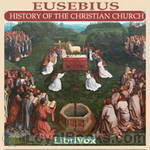 Eusebius' History of the Christian Church
Eusebius' History of the Christian Church
Eusebius presents the history of the Church from the apostles to his own time, with special regard to the following points:1. the successions of bishops in the principal sees2. the history of Christian teachers3. the history of heresies4. the history of the Jews5. the relations to the heathen6. the martyrdoms. | |
By: Gaius Suetonius Tranquillus (c75 - c160 AD) | |
|---|---|
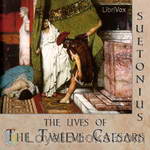 The Lives of the Twelve Caesars
The Lives of the Twelve Caesars
The Twelve Caesars is a set of twelve biographies of Julius Caesar and the first 11 emperors of the Roman Empire. The work was written in 121 during the reign of the emperor Hadrian, while Suetonius was Hadrian’s personal secretary. On the Life of the Caesars concentrates on the acts and personalities of the Julio-Claudians and their immediate successors. Together with Tacitus’ Annals, this work is a major source for the historical details in Robert Graves’ novels “I Claudius” and “Claudius the God”. | |
By: James Otis (1848-1912) | |
|---|---|
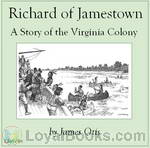 Richard of Jamestown: A Story of the Virginia Colony
Richard of Jamestown: A Story of the Virginia Colony
Richard of Jamestown by James Otis was written for children with the purpose to show them the daily home life of the Virginia colonists. It is written from the viewpoint of a young boy named Richard Mutton. | |
By: Louis Hémon (1880-1913) | |
|---|---|
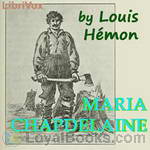 Maria Chapdelaine
Maria Chapdelaine
Maria Chapdelaine is one of the most famous French Canadian novels. It is the love story of Maria Chapdelaine, daughter of a peasant family in the Saguenay-Lac-St-Jean region of Quebec, in the 1900s. It is often seen as an allegory of the French Canadian people, describing simple joys and great tragedies, the bonds of family, the importance of faith, and the strength of body and spirit needed to endure the harshness of life in Canada’s northern wilderness. | |
By: Walter Besant (1836-1901) | |
|---|---|
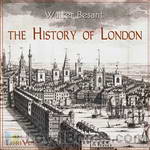 The History of London
The History of London
Walter Besant was a novelist and historian, and his topographical and historical writings, ranging from prehistoric times to the nineteenth century, were probably best known through the detailed 10-volume Survey of London published after his death. This earlier single volume covers, in less depth, the whole period from prehistory until the 19th century. The book appears originally to have been written for boys, and, indeed, the chapters are called “Lessons”. However, it is a very readable history and provides a fascinating insight into both London’s past and the government of the City at the time the book was written (1894). | |
By: Thomas Carlyle | |
|---|---|
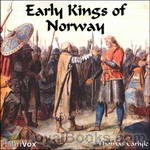 Early Kings of Norway
Early Kings of Norway
“The Icelanders, in their long winter, had a great habit of writing; and were, and still are, excellent in penmanship. It is to this fact, that any little history there is of the Norse Kings and their old tragedies, crimes and heroisms, is almost all due. The Icelanders, it seems, not only made beautiful letters on their paper or parchment, but were laudably observant and desirous of accuracy; and have left us such a collection of narratives (Sagas, literally “Says”) as, for quantity and quality, is unexampled among rude nations... | |
By: General Sir John Miller Adye (1819-1900) | |
|---|---|
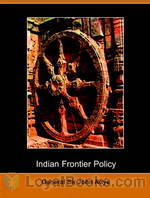 Indian Frontier Policy, an Historical Sketch
Indian Frontier Policy, an Historical Sketch
“The subject of our policy on the North-West frontier of India is one of great importance, as affecting the general welfare of our Eastern Empire, and is specially interesting at the present time, when military operations on a considerable scale are being conducted against a combination of the independent tribes along the frontier. It must be understood that the present condition of affairs is no mere sudden outbreak on the part of our turbulent neighbours. Its causes lie far deeper, and are the consequences of events in bygone years”. (From the author’s Preface, 1897). | |
By: Leander Stillwell (1843-1934) | |
|---|---|
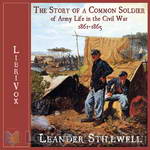 The Story of a Common Soldier of Army Life in the Civil War, 1861-1865
The Story of a Common Soldier of Army Life in the Civil War, 1861-1865
Leander Stillwell was an 18-year-old Illinois farm boy, living with his family in a log cabin, when the U.S. Civil War broke out. Stillwell felt a duty “to help save the Nation;” but, as with many other young men, his Patriotism was tinged with bravura: “the idea of staying at home and turning over senseless clods on the farm with the cannon thundering so close at hand . . . was simply intolerable.” Stillwell volunteered for the 61st Illinois Infantry in January 1861. His youthful enthusiasm for the soldier’s life was soon tempered at Shiloh, where he first “saw a gun fired in anger,” and “saw a man die a violent death... | |